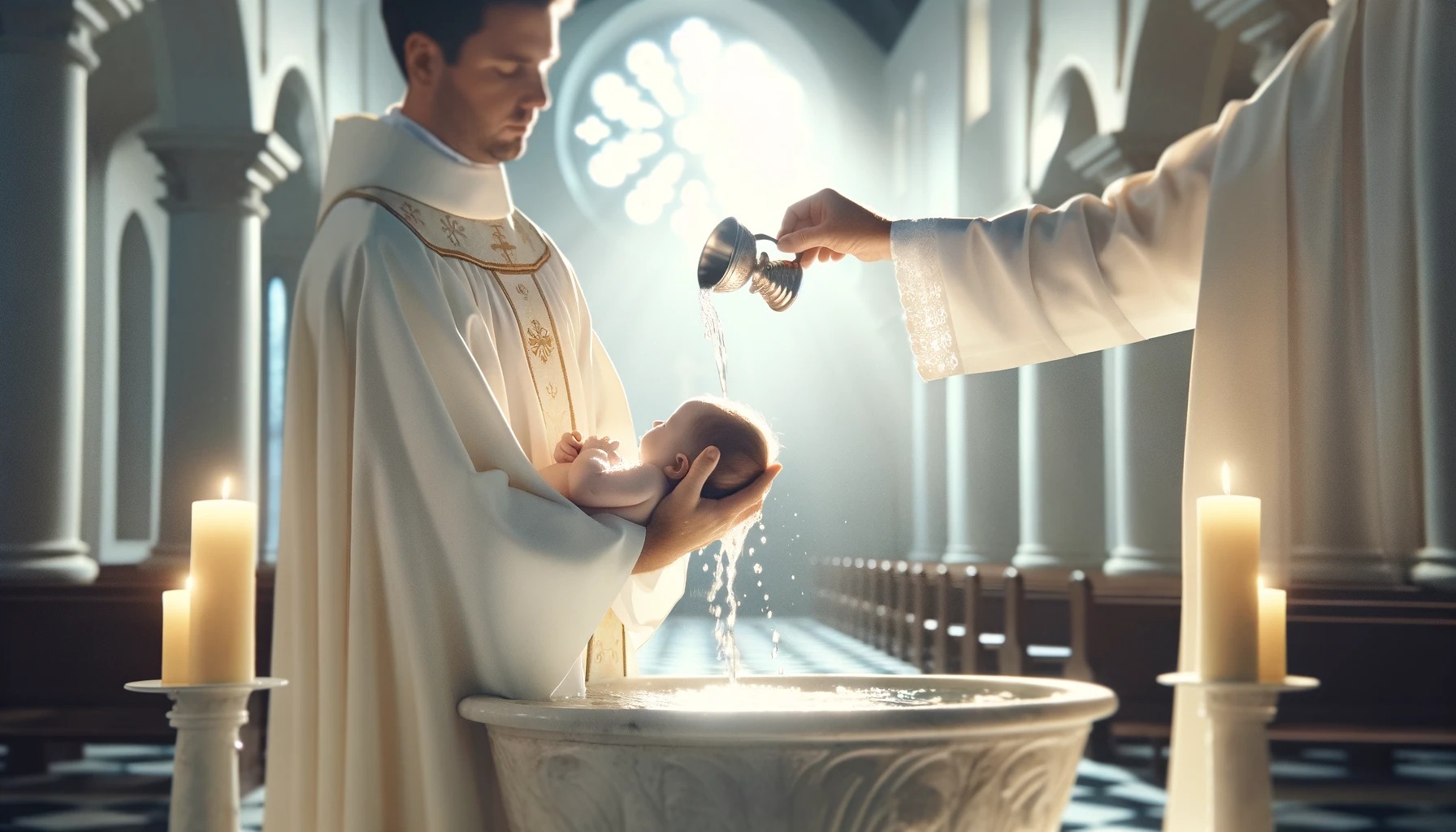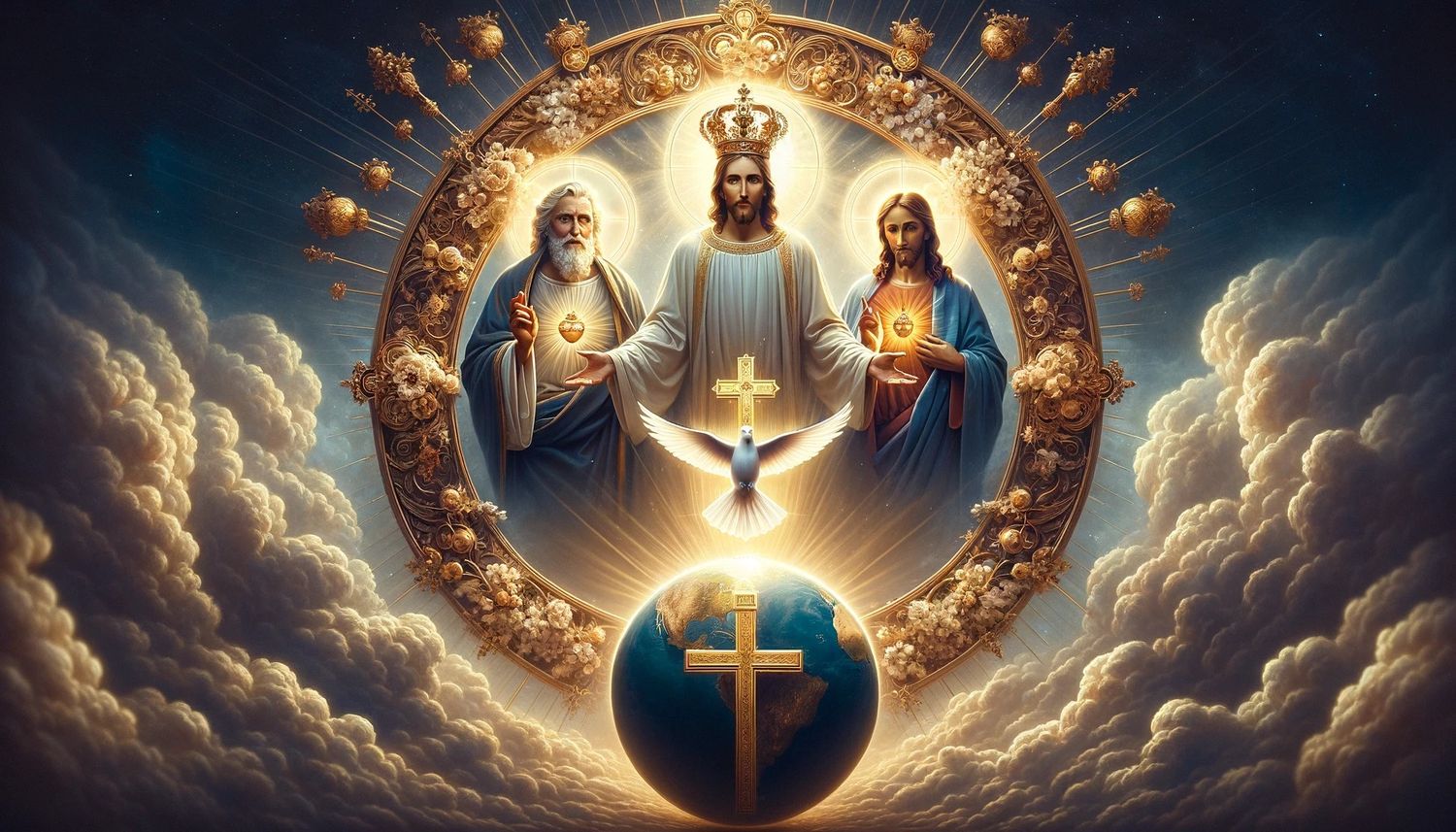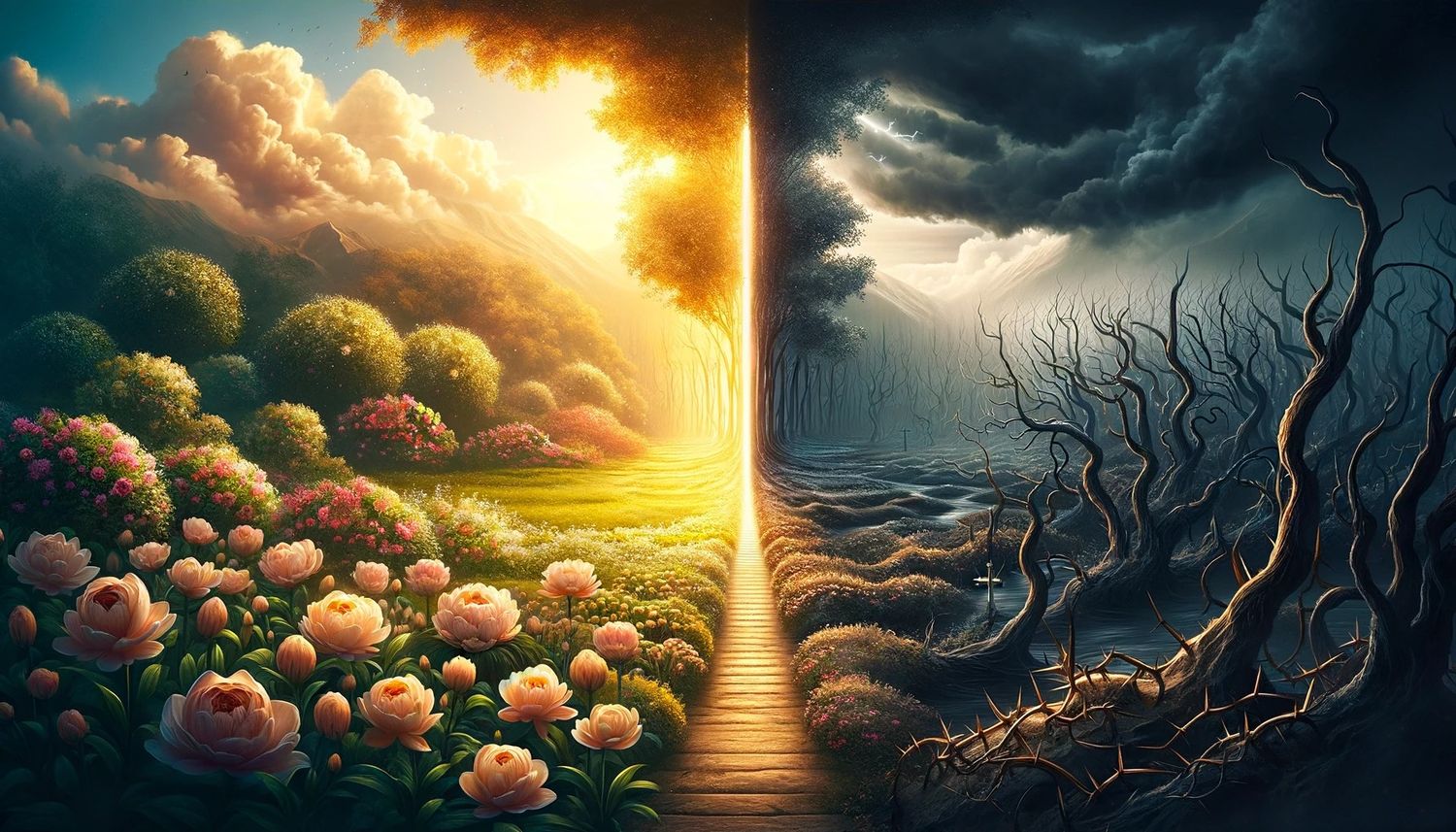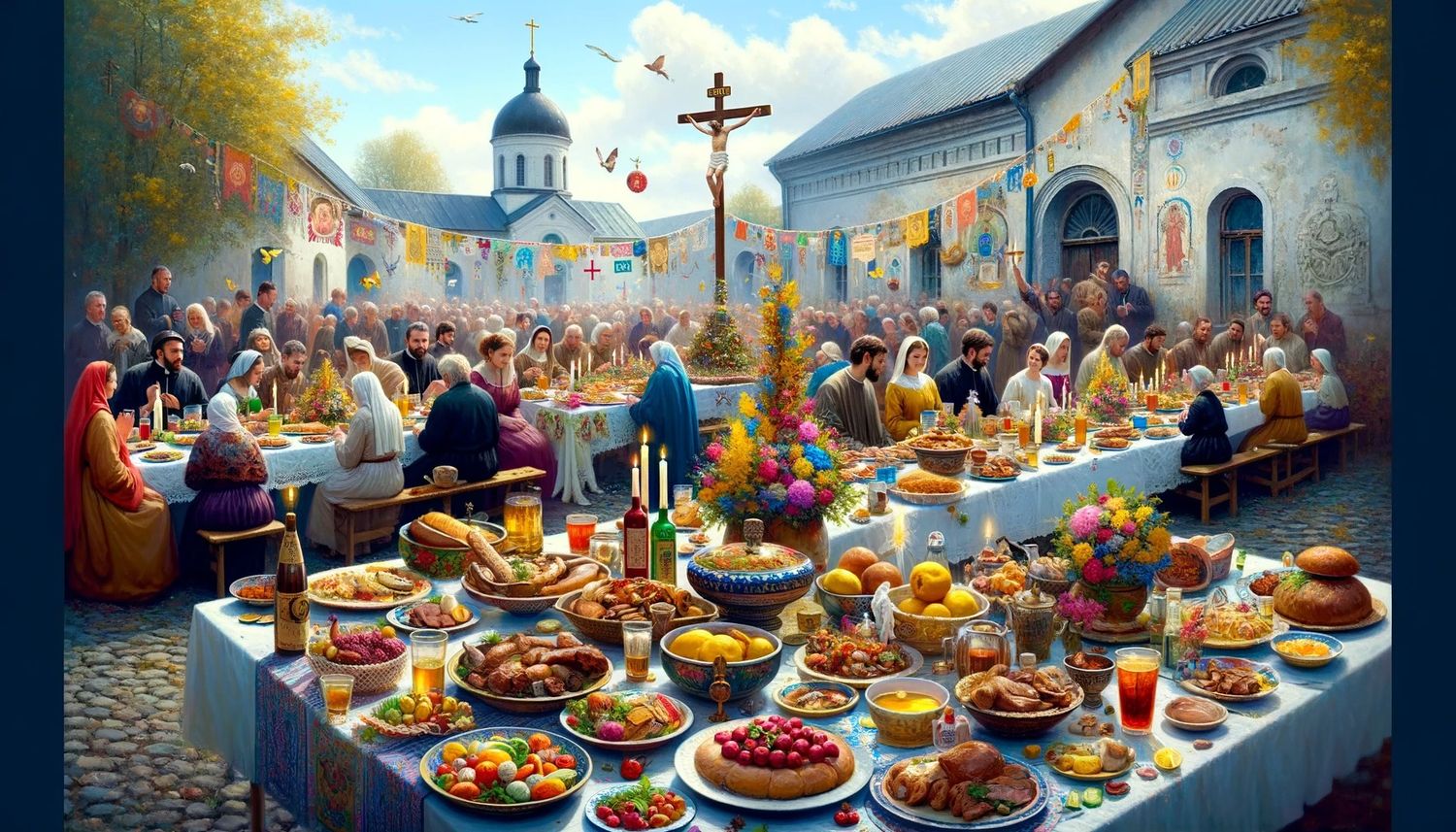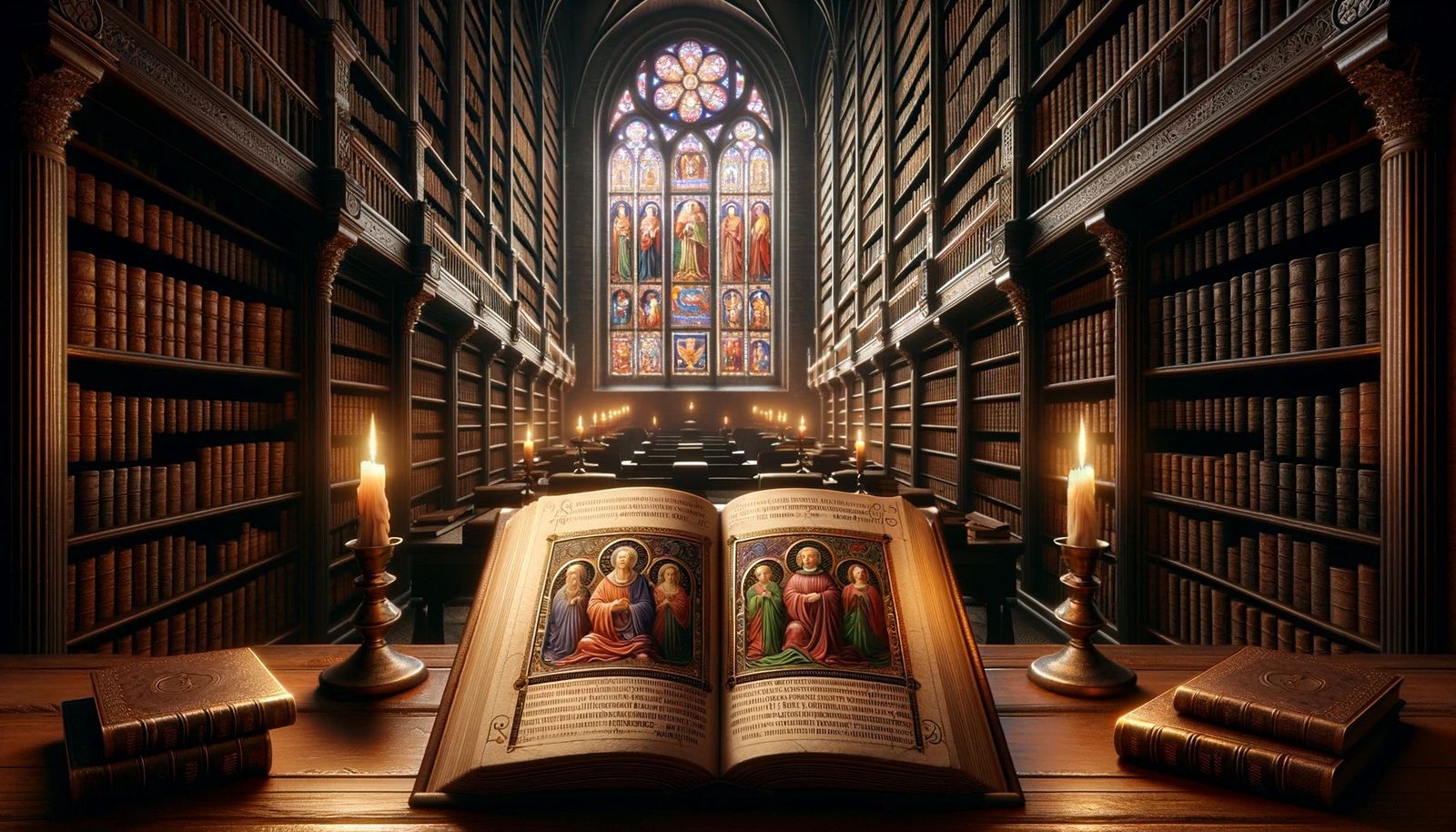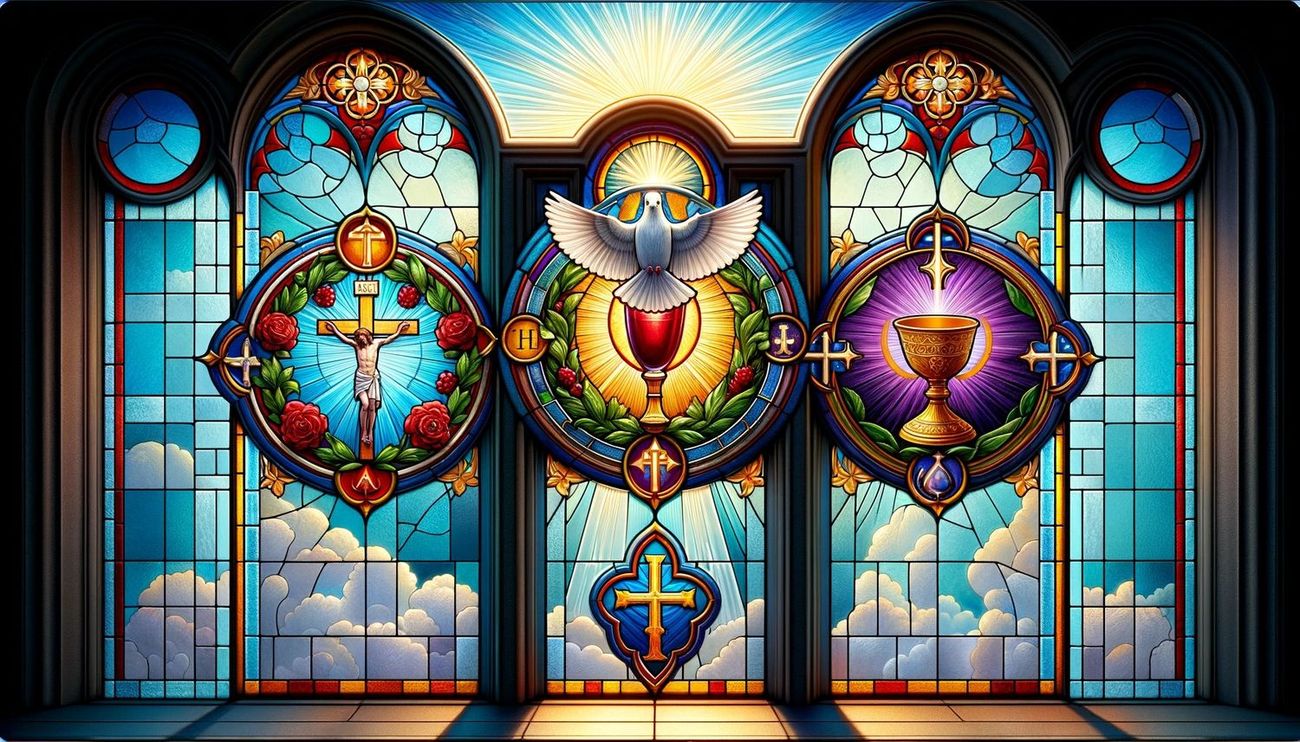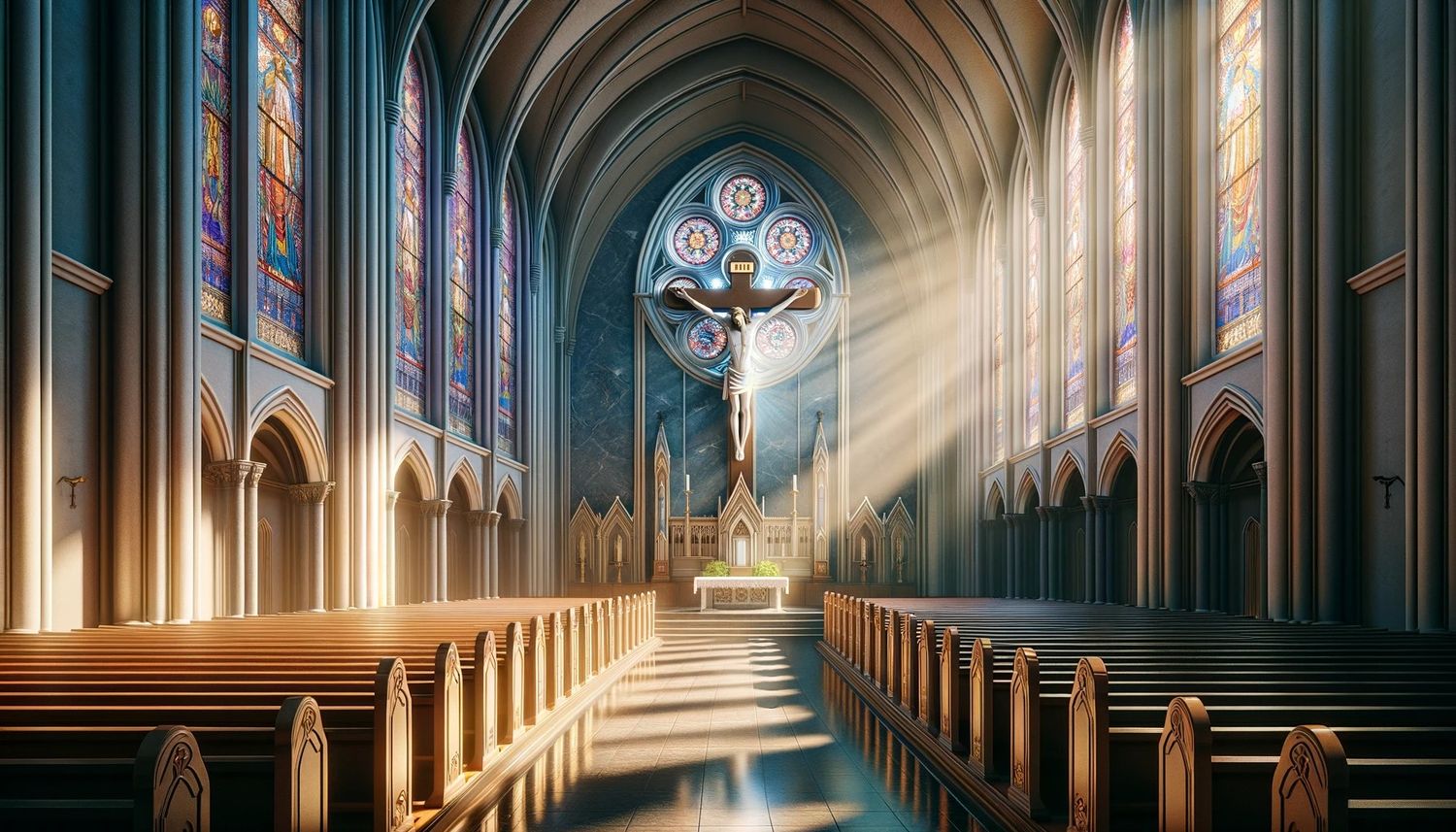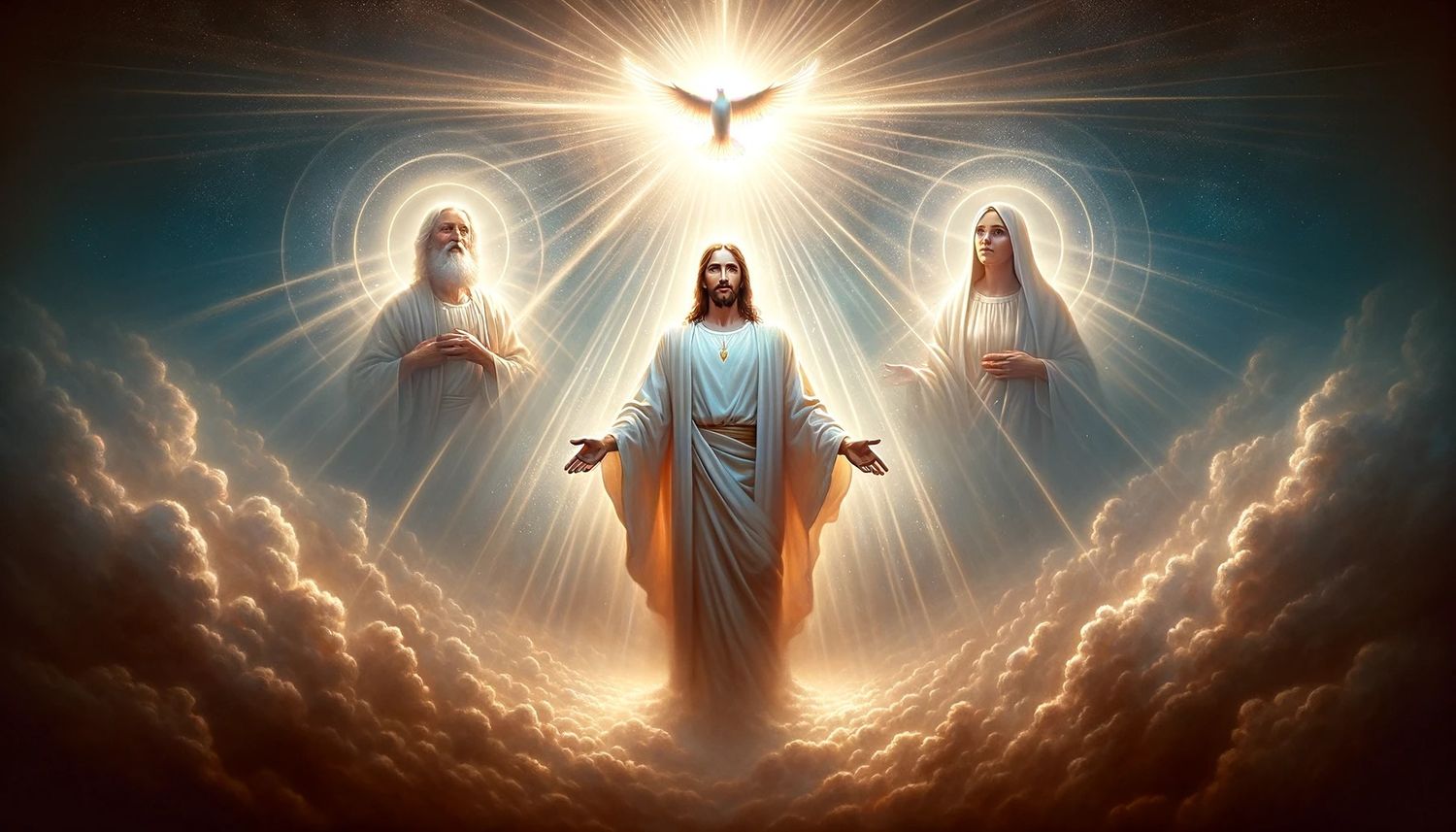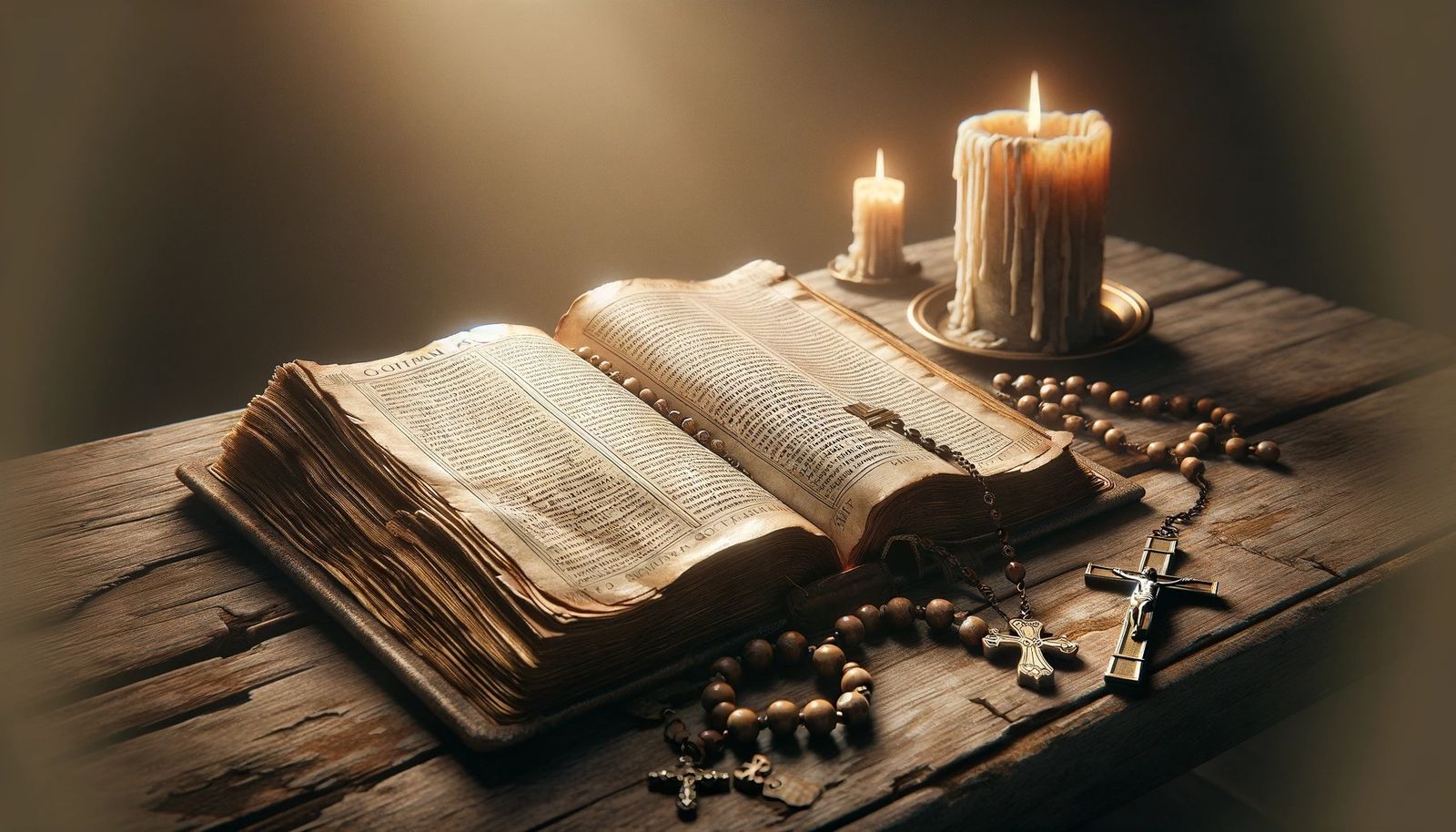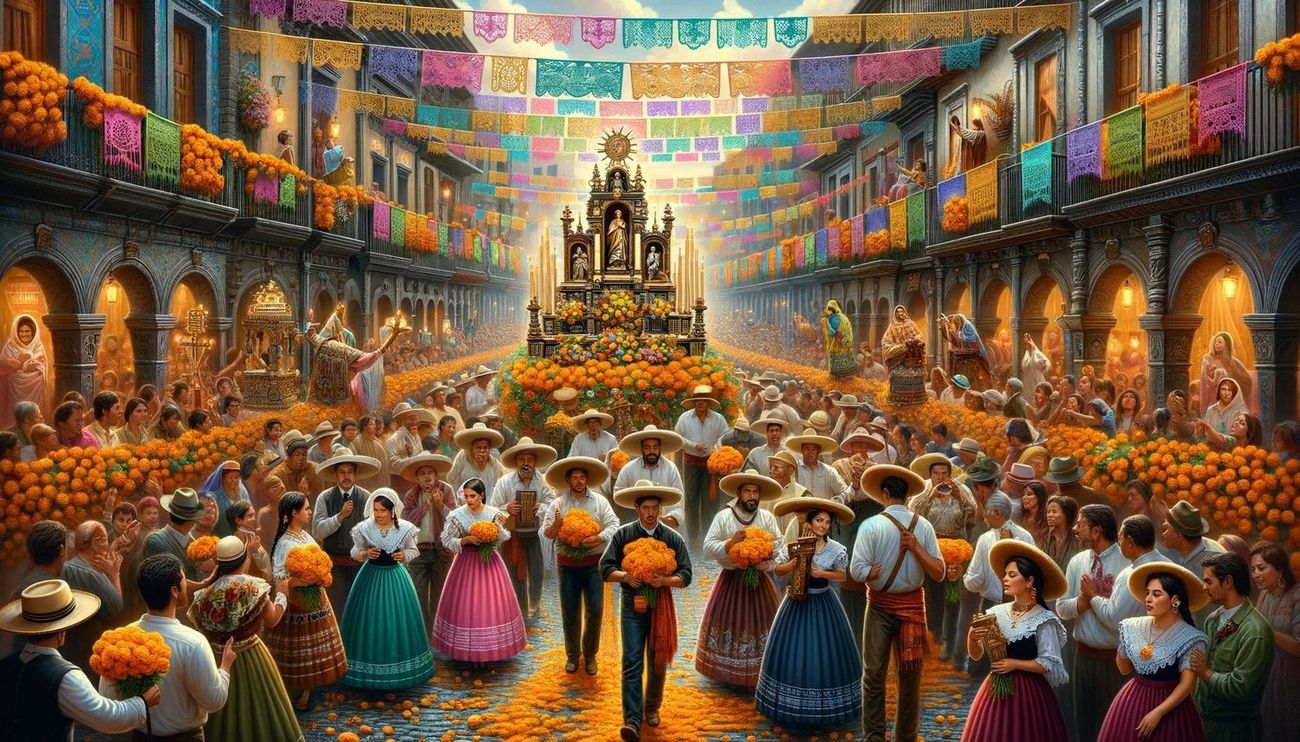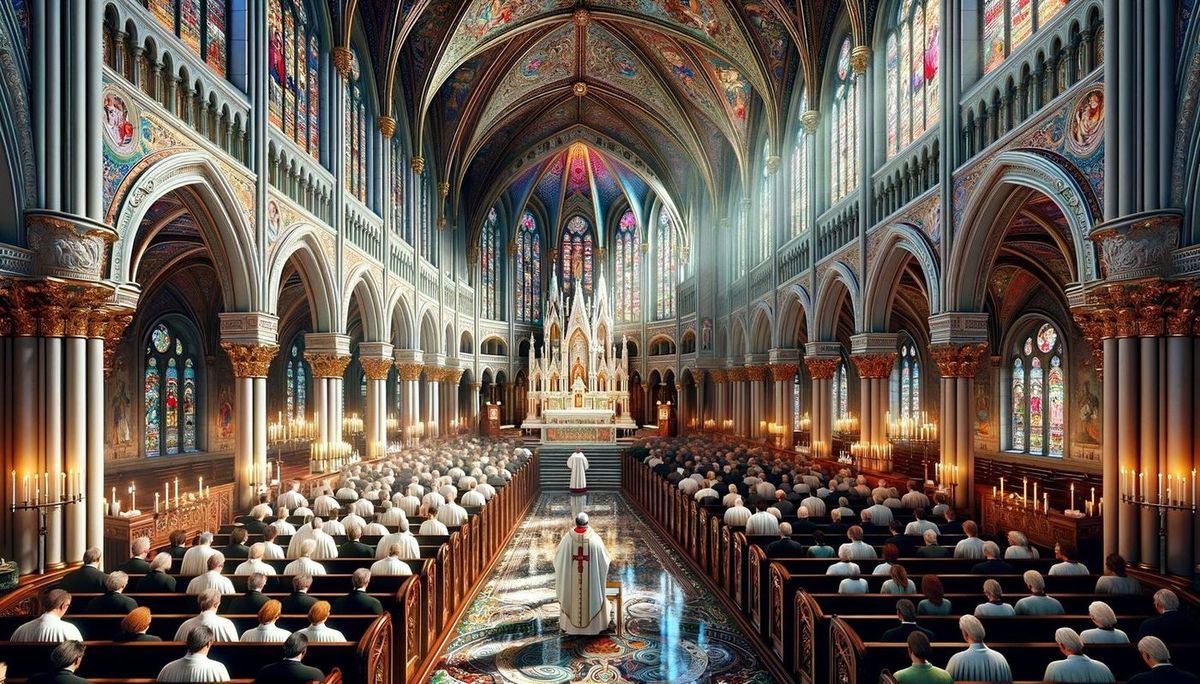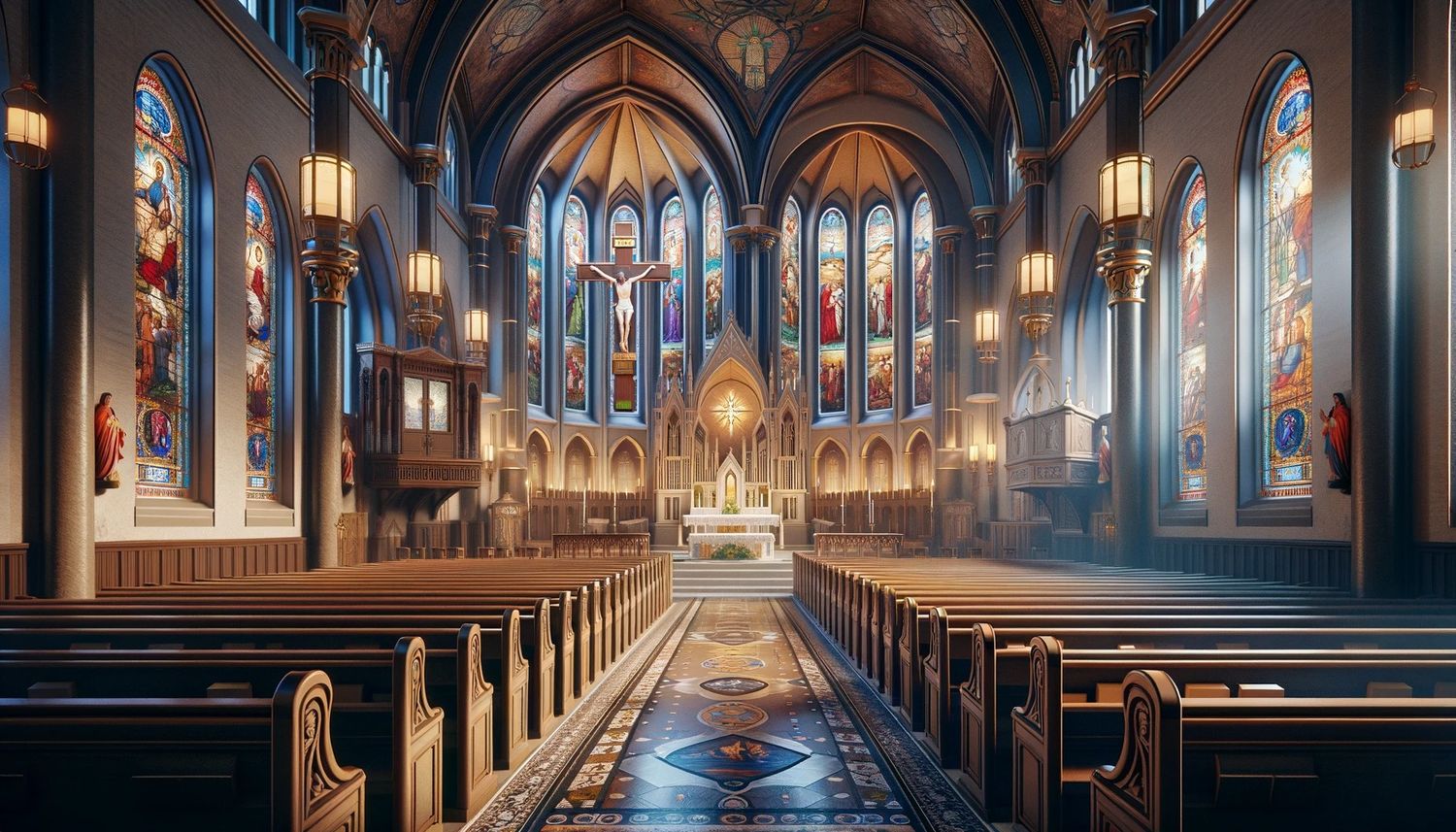Home>Theology and Spirituality>What Is Catholicism?
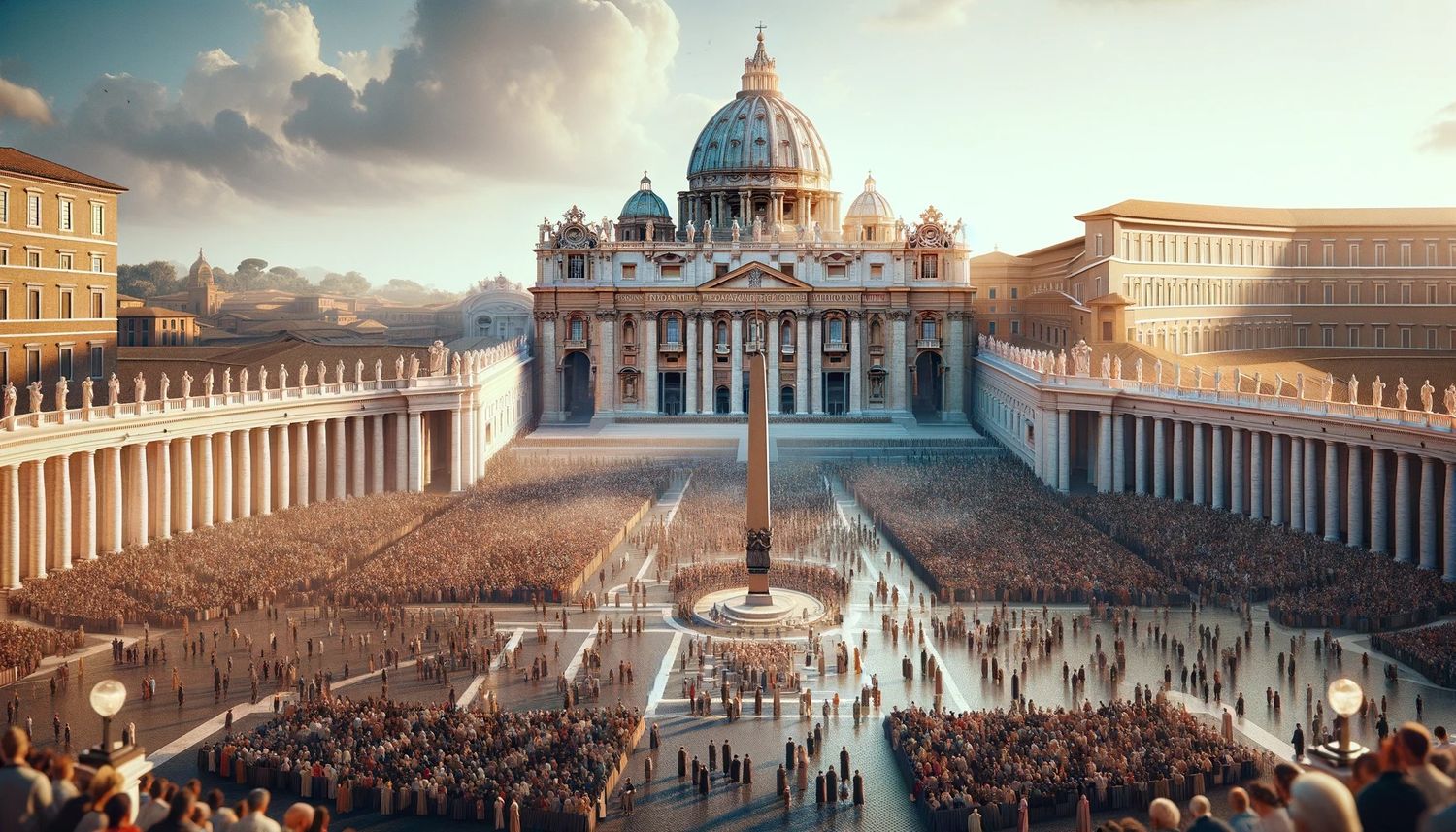

Theology and Spirituality
What Is Catholicism?
Published: February 17, 2024
Ericka Andersen, an editor at Christian.net, expertly merges digital strategy with content creation, focusing on faith and societal issues. Her communication skills enhance the platform's engaging narratives, fostering meaningful dialogue on belief's impact on society.
Discover the essence of Catholicism and its impact on theology and spirituality. Explore the beliefs, practices, and traditions of this influential faith.
(Many of the links in this article redirect to a specific reviewed product. Your purchase of these products through affiliate links helps to generate commission for Christian.net, at no extra cost. Learn more)
Table of Contents
Introduction
Catholicism, one of the oldest and most widespread Christian traditions, has a rich history and a profound influence on the world. With over a billion followers globally, it is a major force in shaping religious, cultural, and ethical landscapes. Rooted in the teachings of Jesus Christ and the apostles, Catholicism has evolved over two millennia, embracing diverse cultures and enduring through significant historical events.
The Catholic Church, with its intricate rituals, sacred traditions, and deep spiritual significance, has captivated the hearts and minds of believers for centuries. Its impact extends beyond the realm of religion, permeating art, literature, philosophy, and social structures. Understanding the essence of Catholicism entails delving into its history, beliefs, practices, and global presence.
This article will explore the multifaceted aspects of Catholicism, shedding light on its origins, core tenets, and the controversies that have shaped its narrative. From the role of the Pope to the significance of sacraments, we will embark on a journey to unravel the complexities and beauty of this ancient faith. As we navigate through the intricate tapestry of Catholicism, we will gain a deeper appreciation for its enduring legacy and the profound impact it continues to have on individuals and societies worldwide.
Read more: What Is Confirmation In Catholicism
History of Catholicism
The history of Catholicism is a tapestry woven with threads of faith, persecution, triumph, and evolution. Its roots can be traced back to the life and teachings of Jesus Christ, who is revered as the Son of God and the cornerstone of the Christian faith. After his crucifixion and resurrection, the apostles spread his message, laying the foundation for what would later become the Catholic Church.
The term "Catholic" originates from the Greek word "katholikos," meaning "universal," reflecting the Church's mission to embrace all people and cultures. In the early centuries, Christianity faced persecution under the Roman Empire, yet it continued to thrive, buoyed by the unwavering commitment of its followers. The conversion of Emperor Constantine to Christianity in the 4th century marked a pivotal moment, leading to the eventual establishment of Christianity as the state religion.
The 11th century witnessed the Great Schism, resulting in the division of the Christian Church into the Western (Catholic) and Eastern (Orthodox) branches. This schism led to distinct theological, cultural, and ecclesiastical differences that endure to this day. The Catholic Church, centered in Rome, continued to expand its influence, becoming a dominant force in medieval Europe and beyond.
The Renaissance and the Age of Exploration brought both enlightenment and challenges to Catholicism. The Church's authority was tested by intellectual and scientific advancements, leading to conflicts such as the Galileo affair. The 16th-century Protestant Reformation, sparked by Martin Luther, further fractured the Christian world, giving rise to Protestant denominations and triggering a period of religious upheaval.
The Council of Trent, convened in response to the Reformation, initiated the Catholic Counter-Reformation, reaffirming core doctrines and addressing internal reforms. The missionary endeavors of Catholic explorers and religious orders spread the faith to the Americas, Africa, Asia, and Oceania, leaving an indelible mark on global history and culture.
In modern times, the Catholic Church has grappled with social and political changes, engaging in dialogues with other faiths and adapting to the challenges of a rapidly evolving world. The Second Vatican Council in the 1960s brought significant reforms, fostering a spirit of renewal and openness while upholding the Church's timeless teachings.
The history of Catholicism is a testament to the enduring resilience and adaptability of a faith that has weathered the tides of time, leaving an indelible imprint on human civilization. It continues to evolve, guided by its rich heritage and the enduring message of love, compassion, and redemption.
Beliefs and Practices
At the core of Catholicism lies a tapestry of beliefs and practices that form the spiritual and moral foundation of its followers. Central to Catholic faith is the belief in the Holy Trinity, comprising God the Father, Jesus Christ the Son, and the Holy Spirit. This triune nature of God underscores the divine unity and the interconnectedness of the three persons in one Godhead, serving as a fundamental tenet of Catholic theology.
The veneration of Mary, the mother of Jesus, holds a significant place in Catholic devotion. Mary is revered as the Mother of God and a symbol of purity and maternal intercession. The doctrine of the Immaculate Conception, which asserts that Mary was conceived without original sin, further underscores her revered status within Catholic belief.
The Eucharist, also known as Holy Communion, stands as a central sacrament in Catholic worship. It symbolizes the Last Supper, where Jesus instituted the ritual of consuming bread and wine as his body and blood. This act of partaking in the Eucharist is considered a profound spiritual communion with Christ, emphasizing the real presence of Jesus in the consecrated elements.
The sacrament of confession, or penance, holds a pivotal role in Catholic practice. It offers believers the opportunity to seek forgiveness for their sins through the sacramental absolution administered by a priest. This act of contrition and reconciliation reflects the Catholic emphasis on spiritual renewal and the healing power of God's mercy.
Catholicism also upholds the sanctity of marriage and family life, emphasizing the sacramental bond between spouses and the nurturing of children within a loving and faith-centered environment. The sacrament of marriage is viewed as a sacred covenant, reflecting the divine union between Christ and the Church.
The liturgical calendar, with its cycle of feasts, fasts, and seasons, shapes the rhythm of Catholic worship and spiritual life. From the joyous celebrations of Christmas and Easter to the reflective periods of Lent and Advent, the liturgical calendar provides a framework for communal prayer, reflection, and spiritual growth.
The rich tapestry of Catholic beliefs and practices reflects a deep reverence for tradition, scripture, and the teachings of the Church. It encompasses a diverse array of devotions, rituals, and ethical principles that guide the faithful in their journey of faith and moral living. This intricate blend of spirituality and religious observance forms the vibrant tapestry of Catholicism, nurturing a profound sense of spiritual identity and communal belonging among its adherents.
The Role of the Pope
At the pinnacle of the Catholic Church stands the Pope, who serves as the spiritual leader and the visible head of the global Catholic community. The title "Pope" is derived from the Latin word "papa," meaning "father," reflecting the paternal role the Pope embodies in shepherding the faithful. The Pope, believed by Catholics to be the successor of Saint Peter, holds a position of immense significance, wielding authority over matters of doctrine, governance, and moral guidance within the Church.
Central to the Pope's role is his function as the Vicar of Christ, representing Jesus' earthly authority and serving as the unifying figure for Catholics worldwide. As the Bishop of Rome, the Pope is entrusted with the stewardship of the diocese of Rome, where the seat of St. Peter, the first Pope, is located. This dual role as the universal shepherd and the local bishop underscores the Pope's pastoral responsibilities and his connection to the historical roots of the Church.
The Pope's authority extends beyond spiritual matters to encompass doctrinal pronouncements, papal encyclicals, and apostolic exhortations, which elucidate and interpret Church teachings. His infallibility, a doctrine invoked under specific conditions, underscores the belief that the Pope, when speaking ex cathedra on matters of faith and morals, is preserved from error by the Holy Spirit. This doctrine serves as a cornerstone of Catholic theology, emphasizing the Pope's role as a custodian of divine truth within the Church.
In addition to his doctrinal authority, the Pope plays a crucial role in fostering ecumenical dialogue and interfaith relations, seeking to promote unity among Christians and build bridges with people of other religious traditions. His global influence extends to matters of social justice, human rights, and advocacy for the marginalized, amplifying the Church's voice on pressing global issues.
The Pope's symbolic significance transcends religious boundaries, often assuming the role of a moral authority on the world stage. His visits to different countries, outreach to the poor and vulnerable, and efforts to promote peace and reconciliation exemplify the universal impact of his leadership.
The role of the Pope is deeply intertwined with the historical legacy and spiritual authority of the Catholic Church, embodying a blend of tradition, stewardship, and global influence. Through his teachings, pastoral care, and advocacy, the Pope continues to shape the collective conscience of the Church and inspire a sense of unity, compassion, and solidarity among Catholics worldwide.
Sacraments in Catholicism
Sacraments form the spiritual bedrock of Catholicism, serving as sacred rites that symbolize and impart divine grace to the faithful. Rooted in the teachings of Jesus Christ and the apostolic tradition, the seven sacraments encompass pivotal moments in the life of a Catholic, marking significant milestones of faith and spiritual growth.
Read more: What Is The Symbol Of Catholicism
Baptism
Baptism, the gateway to the sacramental life, initiates individuals into the Christian community, cleansing them from original sin and bestowing upon them the grace of rebirth. Through the pouring of water and the invocation of the Holy Trinity, baptism signifies a profound spiritual regeneration and incorporation into the body of Christ.
Confirmation
Confirmation, often referred to as the sacrament of the Holy Spirit, strengthens the baptized and equips them with the gifts of the Holy Spirit. Through the anointing with chrism oil and the laying on of hands by a bishop, candidates affirm their faith and embrace a deeper connection to the Church, empowering them to bear witness to the Christian faith.
Eucharist
The Eucharist, the source and summit of the Christian life, embodies the real presence of Jesus Christ in the consecrated bread and wine. Through the act of Holy Communion, believers partake in the body and blood of Christ, fostering a profound union with the Savior and the community of believers.
Reconciliation
The sacrament of reconciliation, also known as penance or confession, offers the opportunity for contrition, confession, and absolution. Through the ministry of a priest, individuals seek God's forgiveness and reconcile with the Church, experiencing the liberating grace of God's mercy and the restoration of spiritual wholeness.
Read more: What Is Anglo-Catholicism
Anointing of the Sick
The anointing of the sick provides spiritual strength and healing to those facing illness or the frailty of old age. Through the anointing with blessed oil, the sacrament offers comfort, courage, and the grace of God's presence, affirming the enduring hope and compassion of the Christian community.
Holy Orders
Holy Orders, conferred upon deacons, priests, and bishops, bestows the authority and grace to serve the Church and administer the sacraments. Through the laying on of hands and the prayer of consecration, individuals are ordained to carry out the sacred ministry, embodying Christ's presence in their pastoral care and leadership.
Matrimony
The sacrament of matrimony unites a man and a woman in a lifelong covenant of love and fidelity, mirroring the union between Christ and the Church. Through their vows and the blessing of their union, couples receive the grace to nurture a family rooted in faith, mutual support, and the enduring bond of sacramental love.
The sacraments in Catholicism encapsulate the profound mysteries of faith, offering tangible encounters with the divine and shaping the spiritual journey of believers. They serve as sacred conduits of God's grace, infusing the ordinary moments of life with extraordinary significance and sanctity, nurturing a vibrant tapestry of faith and communal belonging within the Catholic tradition.
Catholicism Around the World
Catholicism's global footprint spans continents, cultures, and centuries, weaving a rich tapestry of faith, tradition, and diversity. From the majestic cathedrals of Europe to the vibrant parishes in Africa, Asia, and the Americas, Catholicism's universal embrace reflects its enduring impact on the human experience.
In Europe, the heartland of Catholicism, the faith has left an indelible mark on history, art, and culture. The Vatican City, nestled within the city of Rome, stands as the epicenter of Catholicism, housing the seat of the Pope and serving as a spiritual focal point for millions of believers worldwide. The grandeur of St. Peter's Basilica and the Sistine Chapel, adorned with masterpieces by Michelangelo and other Renaissance luminaries, stands as a testament to the enduring legacy of Catholic artistic and architectural brilliance.
In the Americas, Catholicism's influence is deeply ingrained in the fabric of diverse societies, from the fervent devotion of Latin America to the rich tapestry of Catholic immigrant communities in North America. The missionary zeal of Spanish and Portuguese explorers brought Catholicism to the shores of the New World, shaping the religious and cultural landscape of nations such as Mexico, Brazil, and the United States. The vibrant celebrations of festivals like Dia de los Muertos in Mexico and the Feast of Our Lady of Guadalupe exemplify the fusion of indigenous traditions with Catholic spirituality, creating a unique expression of faith.
In Africa, Catholicism has witnessed remarkable growth, with a burgeoning population of faithful who embody a dynamic blend of ancient customs and Christian devotion. The Church's commitment to social justice, education, and healthcare has played a pivotal role in uplifting communities and addressing pressing humanitarian challenges across the continent. The vibrant liturgical music, colorful processions, and communal solidarity reflect the resilience and vibrancy of African Catholicism.
In Asia, the Catholic faith has taken root in diverse cultural landscapes, from the ancient Christian communities in the Middle East to the burgeoning congregations in countries like the Philippines, India, and South Korea. The rich tapestry of Asian Catholicism encompasses a spectrum of traditions, languages, and spiritual expressions, fostering a sense of unity amid cultural diversity.
Catholicism's global presence underscores its capacity to adapt, integrate, and resonate with diverse societies, transcending geographical boundaries and fostering a sense of shared spiritual kinship among believers worldwide. As the Church continues to navigate the complexities of a rapidly changing world, its universal message of love, compassion, and solidarity serves as a beacon of hope and unity for people of all nations and walks of life.
Read more: What Is Evil In Catholicism
Controversies and Criticisms
Throughout its extensive history, Catholicism has been embroiled in controversies and faced criticisms that have shaped its narrative and elicited profound introspection within the Church and beyond. These contentious issues have ranged from theological disputes to ethical dilemmas, often sparking debates and soul-searching reflections on the part of believers and critics alike.
One of the most enduring controversies in the history of Catholicism revolves around the Inquisition, a series of tribunals established to combat heresy and enforce doctrinal orthodoxy. The methods employed, including torture and persecution, have been the subject of intense scrutiny and condemnation, prompting the Church to engage in profound acts of repentance and reconciliation in modern times.
The issue of clerical abuse, particularly the sexual abuse of minors by clergy members, has cast a long shadow over the Church, leading to widespread outrage and calls for accountability and reform. The handling of these cases, including allegations of cover-ups and inadequate responses, has prompted soul-searching and demands for transparency and justice within the Church hierarchy.
The relationship between the Catholic Church and science has been a source of contention, epitomized by the Galileo affair, where the Church's condemnation of Galileo's heliocentric views sparked a rift between faith and scientific inquiry. This historical episode has underscored the complexities of reconciling religious doctrine with advancements in scientific knowledge, prompting ongoing dialogues and efforts to bridge the perceived divide between faith and reason.
The Church's stance on social and moral issues, including contraception, LGBTQ+ rights, and gender equality, has drawn criticism and internal dissent, reflecting the tension between traditional teachings and evolving societal norms. These debates have prompted introspection and calls for a more inclusive and compassionate approach to addressing contemporary ethical challenges.
Amid these controversies, the Catholic Church has grappled with internal divisions, theological debates, and the complexities of engaging with a rapidly changing world. The process of reconciliation, reform, and dialogue has been integral to addressing these contentious issues, fostering a spirit of humility, accountability, and a renewed commitment to the Church's mission of love, justice, and compassion.
The controversies and criticisms that have punctuated the history of Catholicism serve as a testament to the Church's capacity for self-examination, growth, and resilience. They have prompted soul-searching, reform, and a renewed dedication to upholding the core values of the faith while embracing the imperative of addressing the legitimate concerns and grievances of believers and society at large.
Conclusion
In conclusion, Catholicism stands as a profound tapestry of faith, history, and global influence, weaving together centuries of tradition, spirituality, and ethical teachings. From its humble origins in the teachings of Jesus Christ to its expansive presence across continents, the Catholic Church has left an indelible mark on human civilization, shaping art, culture, and the moral conscience of societies.
The rich history of Catholicism, marked by triumphs and challenges, reflects the enduring resilience and adaptability of a faith that has weathered the tides of time. The Church's commitment to social justice, education, and humanitarian endeavors has exemplified its capacity to uplift communities and address pressing global challenges.
The controversies and criticisms that have punctuated the Church's narrative have prompted soul-searching, reform, and a renewed dedication to upholding the core values of the faith. The process of reconciliation, dialogue, and accountability has been integral to addressing these contentious issues, fostering a spirit of humility and a renewed commitment to the Church's mission of love, justice, and compassion.
As Catholicism continues to navigate the complexities of a rapidly changing world, its universal message of love, compassion, and solidarity serves as a beacon of hope and unity for people of all nations and walks of life. The enduring legacy of Catholicism lies in its ability to adapt, integrate, and resonate with diverse societies, transcending geographical boundaries and fostering a sense of shared spiritual kinship among believers worldwide.
In essence, Catholicism embodies a timeless message of faith, hope, and love, inviting individuals to embark on a journey of spiritual growth, communal belonging, and compassionate service to humanity. Its enduring legacy continues to inspire and enrich the lives of millions, shaping a world where the pursuit of truth, justice, and the common good remains a guiding light for generations to come.
